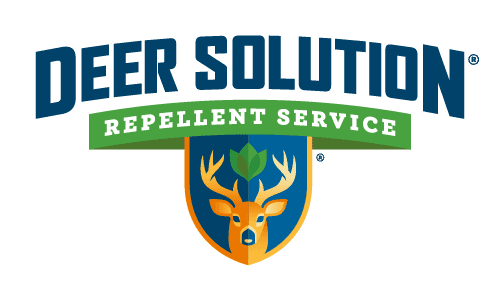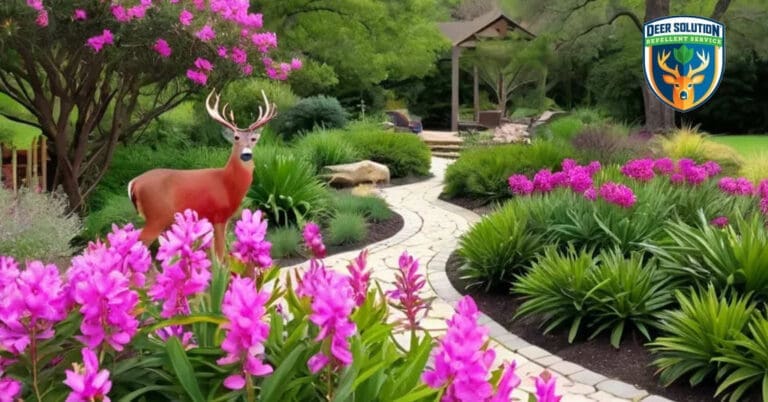Oleanders (Nerium oleander), known for their vibrant flowers and hardy nature, are a popular choice for gardeners. However, one common question remains: do deer eat oleanders? Understanding how deer interact with oleanders is key to maintaining a resilient and beautiful landscape. These evergreen shrubs are valued for their toughness, but how effective are they at deterring deer?
Do Deer Eat Oleanders? Examining Deer Behavior
Deer are opportunistic feeders and will browse on a wide range of plants depending on food availability. While deer often prefer tender new growth, they generally avoid plants that pose a health risk. Oleanders, with their toxic properties, are not typically a favored food source for deer. However, in times of extreme food scarcity—such as during harsh winters or drought—deer may be more willing to sample even toxic plants, including oleanders.
Deer behavior can also vary regionally, depending on the availability of natural food sources. In some regions, deer may entirely avoid oleanders, while in others, they may be more likely to experiment. Monitoring deer activity in your specific area will provide the best insights into whether your oleanders are at risk.
The Toxic Nature of Oleanders
Oleanders are highly toxic to many animals, including deer. All parts of the plant contain toxic compounds called cardiac glycosides, which can cause serious harm if ingested. This toxicity serves as a natural deterrent, making oleanders less appealing to deer. The bitter taste and potential health risks typically cause deer to avoid these shrubs. However, during extreme food shortages, deer may sometimes be tempted to browse on otherwise avoided plants, even toxic varieties.
Why Deer Tend to Avoid Oleanders
Several factors contribute to why deer are unlikely to feed on oleanders:
- Toxicity: The toxic compounds in oleanders pose a health risk to deer, making them unappealing.
- Bitter Taste: Oleander leaves have a bitter taste, which discourages deer from consuming them.
- Strong Odor: The odor emitted by oleanders can also act as a deterrent, as deer often avoid plants with strong or unpleasant smells.
Building a Natural Deer-Resistant Landscape
Oleanders’ natural toxicity makes them a good option for deer resistance, but creating a fully deer-resistant landscape requires more than just plant selection. By incorporating a variety of plants that are native and adapted to your local environment, you can create a garden that is resilient to deer browsing while promoting a healthy, sustainable ecosystem.
Native plants, particularly those that thrive in challenging soil or drought conditions, tend to require less maintenance and are more likely to withstand deer damage. These include drought-tolerant perennials, wildflowers, and native shrubs. By combining oleanders with native species, you can create a garden that discourages deer while supporting biodiversity and promoting sustainability.
Incorporating plants with a variety of textures, growth patterns, and foliage types can further enhance your garden’s deer resistance. Deer are less likely to feed on gardens that include plants with tough or fibrous leaves, spiny branches, or strong scents. With thoughtful plant selection, you can build a landscape that remains attractive to you while being less appealing to deer.
Sustainable Gardening with Oleanders
Beyond their deer-deterring properties, oleanders are ideal for sustainable gardening. These shrubs are drought-tolerant and thrive in poor soil, making them a low-maintenance option for gardeners looking to reduce water use and chemical inputs. Incorporating oleanders into a balanced garden alongside native plants encourages a healthier ecosystem that requires fewer resources to maintain.
While oleanders offer practical benefits, it is important to keep their toxicity in mind. Ensure that they are planted in areas away from pets and children to avoid accidental ingestion. With careful placement and mindful plant selection, oleanders can help create a sustainable, deer-resistant landscape.
Long-Term Protection with Deer Solution
Although oleanders are naturally resistant to deer, no plant is entirely immune to browsing, especially during food shortages. For comprehensive protection, Deer Solution offers an eco-friendly repellent service tailored to your landscape’s needs. Our all-natural repellent is safe for families, pets, and the environment, providing ongoing protection for oleanders and other plants in your garden.
Our certified experts assess your property and design a customized plan that focuses on sustainable practices, ensuring that your garden remains deer-resistant year-round. With Deer Solution’s professional support, you can enjoy a thriving landscape without worrying about deer damage.








